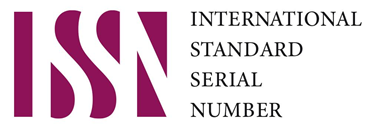THE MARITIME GOVERNANCE CONCEPT IN THE CONTEXT OF ANTI-CORRUPTION, LOGISTICS CYBER SECURITY AND NATIONAL CUSTOMS TRANSIT SYSTEM'S ISSUES AND CHALLENGES IN MALAYSIA
Keywords:
Maritime governance, challenges, anti-corruption, logistics cyber security, national customs transit systemAbstract
Maritime governance is an elusive and formidable concept to define and operationalise since its meanings, interpretations, processes and procedures differ according to the approach, configuration, context, goal, form, level and scope used. The transboundary and complex nature of contemporary maritime environments signify the existence of increasingly complicated systems and forms of maritime governance. Hence the concept of maritime governance must be non-exhaustive, fluid and encompassing so as to be able to illustrate its applicability in different maritime sectors. The problem is that the above gives rise to confusion and misinterpretation of the elasticity of the concept; especially when it attempts to be “interactive, inclusive and integrative” while being contextually exclusive at the same time. The objective of this preliminary study is to illustrate the dichotomy of the concept of maritime governance in the context of anti-corruption, logistics cyber security and national customs transit system by focusing on their respective issues and challenges. A systematic literature review of the operations of the maritime governance concept in maritime anti-corruption, logistics cyber security, and national customs transit system systems of governance has been conducted. Relevant secondary data from official websites, publications, reports, national data sets and legal frameworks have been reviewed and thematically analysed. Findings reveal that the dichotomy of the maritime governance concept arise because of the compositions, operations, frameworks, as well as issues and challenges that are faced in these three areas. Hence it is recommended that more in-depth studies be conducted to illustrate whether the findings are applicable to other maritime sectors.
References
Ahmed, F. B. J. (2018). Corruption According to the Main Sources of Islam. Intellectual Discourse, 26(1), 91-110.
Alcaide, J. I., & Llave, R. G. (2020). Critical infrastructures cybersecurity and the maritime sector. Transportation Research Procedia, 45, 547-554.
Bowman, R., & Smythe, T. (2019). Conceptualizing Maritime Governance: Addressing the challenges of the modern maritime environment. Coast Guard Journal of Safety & Security at Sea, Proceedings of the Marine Safety & Security Council, 76(2), 6-12.
Cheruiyot, S., & Rotich, G. (2018). Factors affecting the implementation of one stop border post strategy. A case study of the Malaba border. International Academic Journal of Human Resource and Business Administration, 3(1), 303-324.
Christopher R. Hayes (2016). Maritime cybersecurity: The future of national security. Naval Postgraduate School Monterey, California. Master Thesis USA.
Chronis, K. (2019). Cyber Security challenges for the maritime industry - in Cyber Security, Opinions. Retrieved from https://safety4sea. com/cm-cyber-security-challenges-for-the-maritime-industry/
Deloitte. (2015). Fighting corruption in the maritime industry what you need to do to navigate in transparent waters. Retrieved from https://www2.deloitte.com/content/ dam/Deloitte/in/Documents/finance/in-fa-fighting-corruption-in-maritime-industry-noexp.pdf
DOSSIER. (2016). Malaysia Launches New Information System. Royal Malaysian Customs Department, 30.
Dye, T. (2014). The policy formulation process. top-down policymaking, June 2008, (pp. 39–64). https://doi.org/10.4135/9781483330150.n3
ENISA. (2019). Port Cybersecurity - The good practises for cybersecurity in the maritime sector, October 2019.
Forgues-Puccio, G. F. (2013). Corruption and the private sector: A review of issues. oxford policy management. Retrieved from http://www.businessenvironment.org/dyn/ be/docs/262/Corruption_and_the_Private_ Sector_EPS_PEAKS_2013.pdf
Gard. (2016). Cyber security awareness in maritime industry. Retrieved from https:// www.gard.no/web/content/cyber-security-awareness
Grabosky, P., & Lamour, P. (2000). Public sector corruption and its Control. Trends and Issues in Crime and Criminal Justice/ Australian Institute of Criminology, 143, 1-6.
Ke, S. (2020). The rule of law at the national and international levels. Retrieved from https://www.un.org/en/ga/sixth/75/pdfs/ statements/rule_of_law/07mtg_asean.pdf
Klitgaard, R. (1988). International cooperation against corruption. Retrieved from https://www. imf.org/external/pubs/ft/fandd/1998/03/pdf/ klitgaar.pdf
Krasner, S. D. (1999). Sovereignty. Princeton University Press.
Malaysian Anti-Corruption Commission (2019). “MACC news archive: National anti-corruption plan (NACP) 2019-2023”, Putrajaya, 31 January. Retrieved from https:// www.sprm.gov.my/ index.php/en/arkib-berita-sprm/3227-national-anti-corruption-plan- 2019-2023-nacp-2019-2023
Marsh. (2014). The risk of cyber-attack to the maritime sector. global marine practice. marsh cyber risk practice. UK.
NSC. (2019). Cyber Security Guideline for Industry 4.0. Cyber Security Malaysia, Cyberjaya Malaysia.
NSC. (2020). Malaysia cyber security strategy. 2020-2024. National Security Council, Prime Minister’s Department, Putrajaya Malaysia.
Mission Secure Source. (2020). A comprehensive guide to maritime cyber security. Retrieved from www.MissionSecure.com
Polatidis, N., Pavlidis, M., & Mouratidis, H. (2018). Cyber-attack path discovery in a dynamic supply chain maritime risk management system. Computer Standards & Interfaces, 56, 74-82.
Pyykkö, H., Kuusijärvi, J., Noponen, S., Toivonen, S., & Hinkka, V. (2020, September). Building a virtual maritime logistics cybersecurity training platform. in hamburg international conference of logistics (hicl) 2020 (pp. 223-246). epubli. http://dx.doi.org/10.15480/882.3130
du-Marche, R. (2017). Transit guidelines route for efficient transit regime. World Custom Organization. Brussels: Belgium. Retrieved from http://www.wcoomd.org/-/media/ wco/public/global/pdf/topics/facilitation/ instruments-and-tools/tools/transit/transit-guidelines.pdf?db=web
Safety4Sea. (2019). Cyber security challenges for the shipping industry - in Cyber Security, Opinions. Retrieved from https://safety4sea. com/cm-cyber-security-challenges-for-the-shipping-industry/
Safety4Sea. (2019, April 15). Shipping industry in favour of IMO’s new anti-corruption agenda. Retrieved from https://safety4sea. com/shipping-industry-in-favour-of-imos-new-anti-corruption-agenda/
Sidney, M. S. (2007). Policy formulation: design and tools. Handbook of public policy analysis: Theory, politics and methods, (pp. 79-87).
Sofartsstyrelsen. (2019). Cyber and information security strategy for the maritime sector. 2019-2022. Danish Maritime Cyber Security Unit.
Tanzi, V. (1995). Government role and the efficiency of policy instruments (october 1995). IMF Working Paper No. 95/100. Retrieved from https://ssrn.com/ abstract=883247
The Malaysian Insider. (2016). Top 5 scandals leaked by informants. The Edge Market. Retrieved from https://www. theedgemarkets.com/article/top-5-scandals-leaked-informants
Tonnies, F. (Ed.) (2018). Custom: An essay on social codes. Routledge.
Transparency International. (2021). corruption perceptions index 2020. Retrieved from https://www.transparency.org/en/publications/ corruption-perceptions-index-2020
UNCTAD. (2009). Trade and development report 2009. UNCTAD/TDR/2009, Geneva: UNCTAD.
Wind Rose Network. (2021). Maritime sector. Retrieved from http://www. windrosenetwork.com
Yu, M., Fransoo, J. C., & Lee, C, Y. (2018). Detention decisions for empty containers hinterland transportation system. Ttransportation Research Part B: Methodological, 188-208.
Downloads
Published
How to Cite
Issue
Section
License
Copyright (c) 2023 PENERBIT UMT

This work is licensed under a Creative Commons Attribution 4.0 International License.












